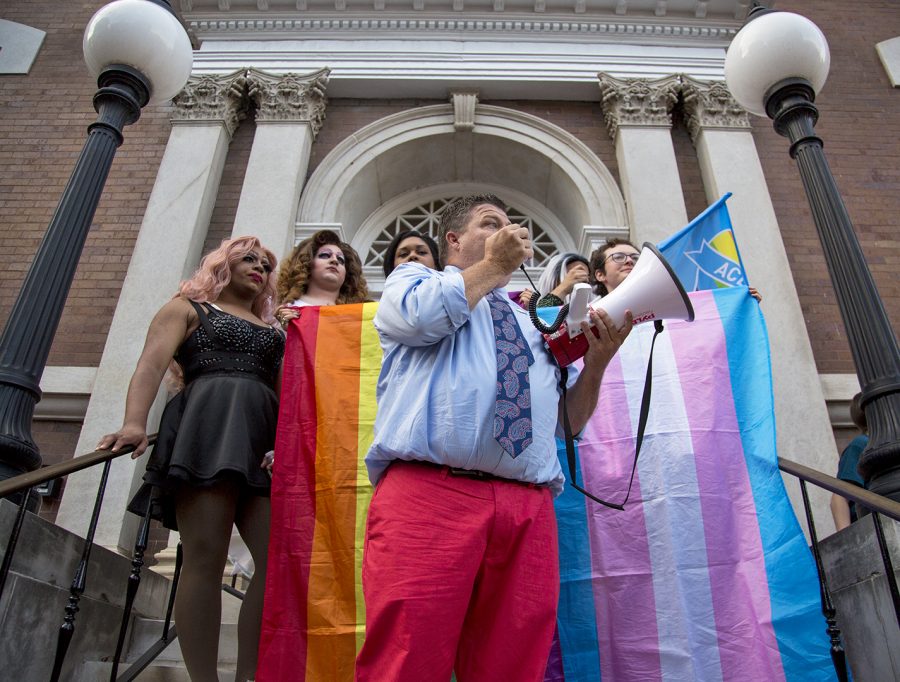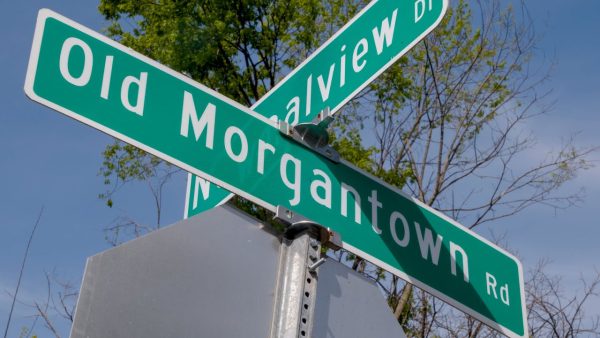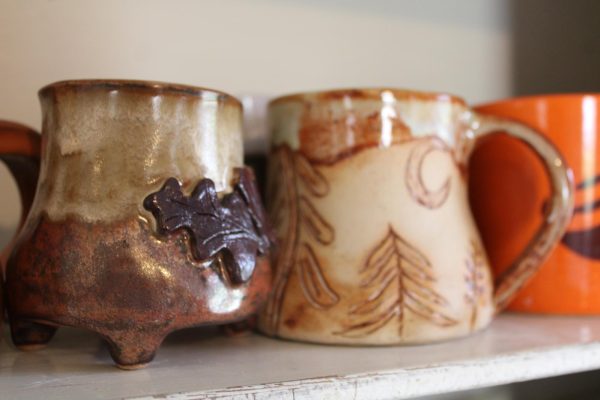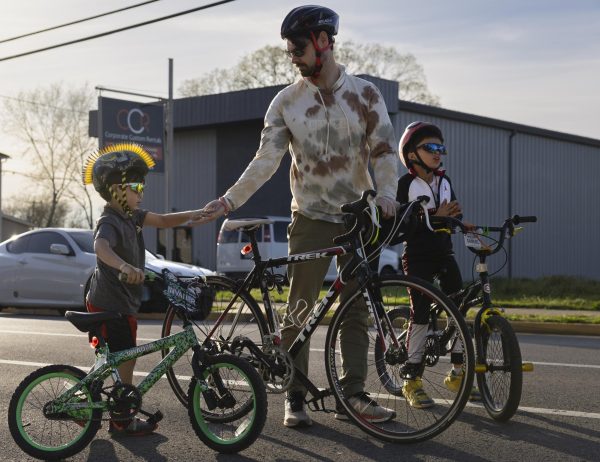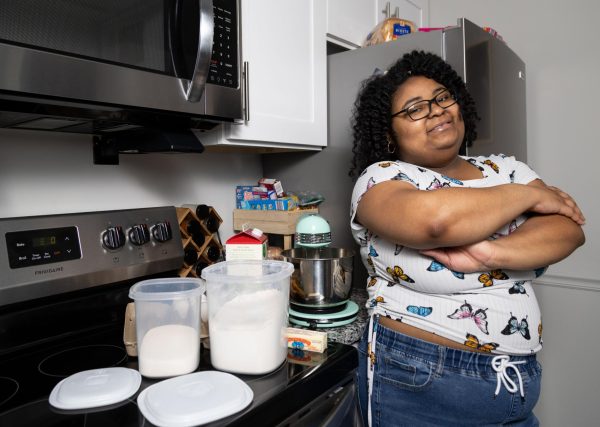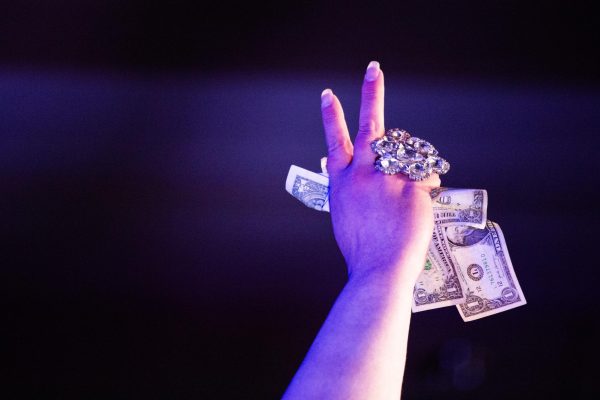Bowling Green Pride Festival brings fairness to the forefront
“The struggle is real and I empathize with how difficult the struggle is, but in this country progress has never come without a struggle,” Nash said.
October 23, 2017
Just eight months ago, thousands of LGBTQ+ Bowling Green citizens shouted in anger, shame and frustration as the Bowling Green City Council declined to pass a fairness ordinance, which would have prohibited discrimination on the basis of sexual orientation and gender identity. This past weekend, these same voices were shouting, but this time it was for a different reason.
The first ever Bowling Green Pride Festival was held last Saturday at Circus Square Park. The event featured a parade, drag shows, live music and food trucks. Later that night, there was a march to the steps of City Hall and a “Love Takes Over” pub crawl with participating bars. There was even a wedding. The event was open to people of all ages, something Louisville freshman Adam Murphy noted.
“My favorite part was probably seeing a lot of the younger high school students,” Murphy said. “Because I always had the opportunity of going to Pride when I was in high school, and seeing others gain this opportunity, it just made me really happy.”
The event was organized by WKU history professor Patricia Minter. As it did not pass when introduced earlier this year, the festival was organized by both faculty and students largely to gain support for the anti-discriminatory movement. One of the festival planning board members was WKU freshman Sabre Semrau.
“Having our first Pride was a huge step for equality in Bowling Green,” Semrau said. “I think it’s extremely important for people to know they’re not alone, and before Pride, the LGBTQIA+ community had never really come together in Bowling Green. Hopefully, this has shown people that the queer (and ally) community of Bowling Green is vast and diverse and wants nothing more than to have the same rights and protections as everyone else.”
The fairness ordinance itself is no new issue. Bowling Green citizens have been fighting for it since 1999 when it was passed in both Lexington and Louisville. However, 18 years later, Bowling Green remains the largest city in Kentucky without some ordinance protecting discrimination based on sexual or gender identity. This discrimination can extend to employment, housing and service opportunities.
When the Kentucky Fairness Campaign stated in 2015 they wanted Bowling Green to become the ninth city in Kentucky to adopt this ordinance, but it has since been tabled multiple times. The 2015 Municipal Equality Index, or MEI, rated Bowling Green the lowest in the state of Kentucky for equality, as a 17 out of 100, only receiving points for having reported hate crime statistics in 2013 and for the existence of a Human Rights Commission. The city received no points for non-discrimination in city employment and in city laws, which would be directly affected by such an ordinance. Cities such as Lexington and Louisville received high marks, with scores such as 73 and 100, respectively.
Despite low marks for the city of Bowling Green, CollegeFinder reports that WKU is the most LGBTQ+ friendly college in the state of Kentucky. The Queer Student Union has been a refuge for queer students on campus for years and is spearheaded by Jeremy McFarland, the QSU lead organizer.
“At QSU, students have the opportunity to learn about resources available to them in the area and about queer history and culture through our events and meetings,” said McFarland. “I think the most important thing QSU and its sub-groups offer is the community. In the south, LGBTQ+ people are left feeling isolated, so having the chance to be around other LGBTQ+ people and allies is really meaningful. That is what made Pride this year so meaningful.”
Reporter Noah Moore can be reached at [email protected] and (270)745-2655.

